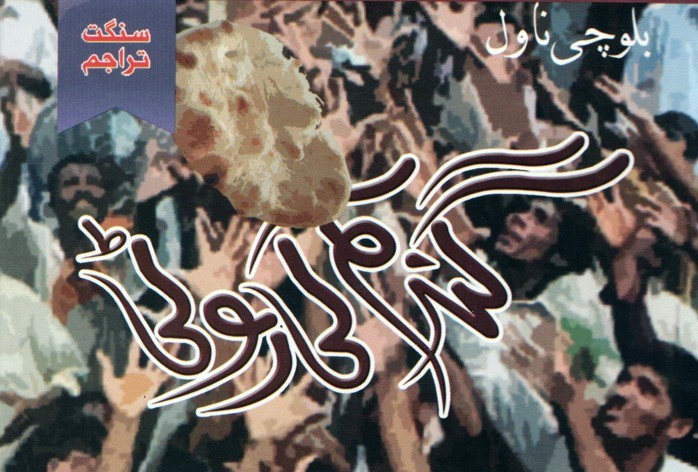
A Balochi novel that tells the story of the forgotten Afghanistan and its people which has been wiped out from the memories by imperialist propaganda

Shah Mohammad Marri is a stubborn comrade who loves his language, literature and ancient rugged land. Living in the most backward province, Balochistan, he is publishing very progressive and enlightened literature under his Sangat Academy of Sciences, Quetta.
In his Sangat Translation series, he has published Ten Days That Shook the World by John Reed, No One Writes to the Colonel by Gabriel Garcia Marquez, The Daughter of Farmer by Noor Mohammad Taraki, The Thief and The Dogs by Naguib Mahfouz with Balochi translation.
Recently, he has published Sohb (Gandum ki Roti), a Balochi novel by Abdul Sattar Purdil, in Urdu translation done by Marri himself.
Marri has written a new introduction but has also included an older introduction written in 2003.
The story of the novel revolves around a very poor family of peasants who are living in abject poverty. Dil Murad, 20, has a young brother Mohammad Khan, 13, and mother Dur Khatun and a young sister, Shah Pari. The family is bonded labour to Allah Dad, a sardar and landlord of the area. Dil Murad is not even allowed to have a bundle of woods in biting cold and returns home empty-handed. He cannot buy new clothes for his younger brother. Tired of eating roti made out of maize, their biggest pleasure is to eat wheat roti and they are even denied this. Years pass like this and Murad cannot get new shoes for his younger brother as they work day and night for Allah Dad.
When spring comes and the harvest is done, the family is happy it would get wheat. But when it was time for distribution of grains, Murad gets nothing as he has yet to pay a lot of loan which has been adding up since generations. Every year, the loan increases despite them paying it. So in order to pay the ever-increasing loan, Shah Pari, the sister has to work in Allah Dad’s house. As years pass, a young Shah Pari is forcefully married to Dad Khuda, a 70 year old man. Hearing this, Shah Pari commits suicide and her brothers are arrested for murdering their own sister and awarded 10 years rigorous imprisonment.
The brothers then meet a comrade, Gumshah, in jail who teaches them and makes them literate and they become members of a revolutionary party. When they get free from jail, they organise the party in their area and become a power to reckon with.
The Saur Revolution of April 1978 comes and Dil Murad becomes a leader of the party (People’s Democratic Party of Afghanistan) and local councillor. Land reforms are introduced, old accounts of loans are burnt and sardars and landlords are hanged. The peasants are now owners of their lands and do well in life. The revolutionary government is providing them new machinery and other facilities. And this is where the novel ends.
It is clear the novel speaks about the Saur Revolution of Noor Mohammad Taraki (1917-1979) and his land reforms that were opposed by the big sardars and landlords in 1979.
The Saur Revolution came in April in 1978. I happened to visit Kabul in August of 1978 while going to Europe by road, fearing Ziaul Haq’s persecution. Kabul at that time was bustling with life and at the same time was a calm and serene city. The hippy movement was at its peak and there used to be a bus route from London to Kathmandu. There were Italian, French, German and of course American neighbourhoods. One could see beautiful young girls going to the Kabul University which had more than 5000 students at the time and was a kind of cultural hub and centre of learning.
Compared to Afghanistan of that time, Pakistan was tense as Zulfikar Ali Bhutto was put behind bars and was under trial while Iran was in turmoil with the anti-Shah movement gaining momentum day by day.
The novel tells the story of that forgotten Afghanistan and its people which has been wiped out from the memories by imperialist propaganda. Now all narratives are about ‘Russians are coming’, the waging of jihad, fall of the Soviet Union or end of communism, rise of Taliban, 9/11, Osama bin Laden, overthrow of Taliban, coming of coalition forces and finally reconciliation and seeking of peace. Whereas the novel shows the real Afghanistan and its people and how this was being changed and then everything was lost.
It is only literature which shows real history and puts forth a counter-narrative to the manufactured and concocted narrative. Shah Mohammad Marri should be thanked for publishing this novel again and highlighting the real struggle and story of people of Afghanistan.